
The magnet has been exceptionally helpful since the day it was discovered.
From compasses to the incredible inventions of today, MRI body scanners, next-generation electric cars, even maglev floating trains and of course magnetic phone mounts, magnets have made our life more comfortable.

However, some things are not completely clear with magnetism, especially when it comes to smartphones.
You may have read or seen postings about how magnetism can hurt your smartphone, GPS errors, screens warping, files vanishing into the ether, and many other problems that are apparently attributed to magnetic interference.
Sounds quite scary? But is this really the case?
There are a number of common misconceptions that you should really be aware of first.
1. Common sense should be applied when it comes to smartphones and magnets.
As the expert from first4magnets, Matt Newby explained, why you might be concerned about magnets ruining your digital devices stems from an understanding of older electronic devices, such as CRT monitors (Cathode ray tube) and televisions, which were susceptible to magnetic fields. If you were to place a strong magnet near one of these, the picture would become distorted, sometimes even funky.
However, he then goes on to explain that, "most modern electronics, like our smartphones, are not going to be adversely affected by small magnets".
Small magnets won’t affect or damage your smartphone.
Today, you will find a wide variety of different magnets used in many different situations, each one specifically designed for the task required—for example, the refrigerator and microwave oven.

The typical type of magnets embedded in a smartphone mount is usually tiny, discrete and not capable of interfering with your device's signal or data.
To make you feel even more confident that magnets will not affect your smartphone, check out this video. The guy uses a super strong neodymium magnet near the iPhone whilst testing that it can still send SMS messages, take calls, use the compass and even attack it with loads of other magnets. Nothing changes (at least not this time, it's a strong magnet anyways).
Most smartphones already have several magnets inside them.
You may already be aware that your smartphone has a number of magnets inside, for example, the speaker, the camera and the vibration module, none of which would work without magnets. Even the Apple Watch uses a magnetic induction wireless charging system to ensure that the watch is aligned to the charging dock.
Many people asked questions like: can a credit card be demagnetized by a phone?. In case you are not clear, they won't do anything to your credit card; they are so small that they can't even pick up a paperclip.
The components or apps will not be affected if you don't use your phone near a strong magnetic field.
Take the electronic compass and speaker as examples. You will find lots of forum threads about how the electronic compass in your smartphone can be affected by magnetic phone mounts, or to be specific, the magnets inside them, but is this true?
It is true that they can be affected, but nowhere near to the extent that you might think. You see, only a powerful magnetic field can affect your phone, and you would have to continuously use your phone's compass or make calls for a long time (months or even years) in the presence of a strong magnetic before they would become affected. So, there is nothing to worry about!
At this point, you are probably thinking, will my magnetic smartphone mount really damage my smartphone? Let’s dig a little deeper.
2. Why won’t a magnetic phone mount damage your smartphone?
When it comes to magnetic interference, the speaker, the screen, the GPS module, the inbuilt compass, and the phone's cell signal are most likely to be affected. However, as Matt explained, "the vast majority of magnets that you come across day to day, even many of the super-strong ones on the market, will have no adverse effect on your smartphone".

1) Why is your phone speaker safe?
As I previously mentioned, the only time that the speaker would only be affected is if you were making a call otherwise, it has no impact. Likewise, when you put your phone on the magnetic mount, the magnetic field is small and located near the phone center. In contrast, the speakers are located on the edges and therefore not affected by the magnetic field.
2) Why is your phone screen safe?
If you wanted to know if the magnet was affecting your phone or not, the easiest way might be to place a magnet on the screen and see if the image is distorted or not?
In the old days, when mobile phones were the size of cereal boxes and PC monitor cases were roughly the same size as a "Ford Escort", they were very susceptible to magnetic interference.

Back then, CRT monitors would generate a picture by shooting an extremely focused electrons beam at a phosphorous coated glass screen and bend the beam horizontally and vertically using magnetic fields. Consequently, any external magnet would interfere with these magnetic fields, resulting in an array of psychedelic colors displayed on the screen, fun for a while but not very good for the screen.

Thankfully, today we have made significant progress with smartphone screens, IPS LCD screens, AMOLED and OLED screens. They have become technically more advanced with no reliance on magnetic fields to function, which means no more focused electron beams, no more 'Ford Escorts', oh and no interference from magnets!
3) Why is the GPS safe?
GPS is a crucial satellite navigation system that works using satellite signals to provide geolocation and time information to a GPS receiver. It enables your phone (if it has a GPS) to determine the location whilst you are out and about, so that you don't get lost.
Importantly, it's a satellite-based system rather than something that relies on geomagnetic forces, so it cannot be affected by a magnetic field or, a magnetic phone mount. However, large obstacles like mountains and buildings can affect weak GPS signals and cause them to error.
4) Why is the cell phone signal safe?
So, you call up your friend who lives in a different city. Within milliseconds, your phone converts the sound of your voice hitting the microphone into a digital signal which is then transmitted as radio waves across the cellular network. At the other end, the signal is converted back into sound by your friend's phone and played out through the speaker without any noticeable lag. If you are familiar with walkie-talkies or CB radio, you will have a good idea of what I mean.

In brief, your phone signal is transmitted through a massive network of cell towers, and these kinds of radio waves are immune to minor magnetic fields.
5) Why is your phone’s electric compass safe?
The compass is a magnetic sensor based on the Hall Effect, a physical phenomenon related to how current flow is affected by magnetic fields. The location and movement of a magnetic field can influence the sensors to 'see' where north actually is.
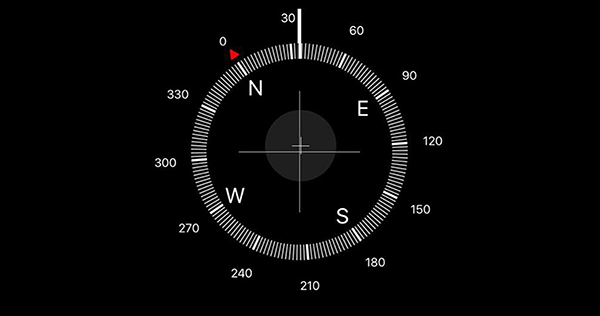
Inevitably this also means that the electronic compass will be affected by any nearby magnetic field, but the magnetic phone mount won't damage it. Why?
Check this article about the iPhone 4 Electronic Compass to understand part of the reason. Actually, 'the AKM compass devices (including the AK8973 electronic compass that iPhone 4 uses) are all based on the Hall Effect principle, which is one of the methods to detect magnetic fields. The compass works like a magnet detector. It moves more or less according to the external magnetic field.
The key point to understand here is that these sensors are only susceptible to very strong magnetic fields, like a laboratory-sized horseshoe magnet.

So, a small magnet does not have the power to permanently damage the compass due to the field's strength, although it will just affect the compass while it is in the vicinity of the smartphone.
Well, I know you might still have doubts.
Check the GIF below to see how the magnetic field changes as the wall thickness varies.

GIF credit to KJ Magnetics
As you can tell, once the metal steel which we usually use to shield a magnet gets below a critical thickness, the material is saturated. It can't hold any more lines of flux. At that point, the flux pops out the far side and travels through the air. Opposite to it, the metal steels can redirect those lines of flux (magnetic fields) to the outside of the steel instead of the inside area when it's thick enough. (though once you reach a specific limit, adding steel thickness won't improve your shielding much.)
Will the flux pop out of the steel even it's thick enough?
Well, I suppose you learned physics at school that usually a magnetic field flows out from the north pole and then gets back into the south pole? It has no chances to slip out of the other directions anyways.

OK, so are you still feeling concerned about magnetic smartphone mounts?
3. A Real-Life Test: PITAKA MagEZ Mount Qi
Let’s see if this magnetic phone mount harms a smartphone or not in real life.
As you can see, apart from the fact that the compass was slightly affected (which we already know is temporary), the smartphone performed perfectly. And this is just one of the thousands of tests we've done after the mount was released, which hopefully, will make you feel a lot more confident about using a magnetic smartphone mount.
The MagEZ Mount Qi has been highly praised for its other useful functions too. It has the security and simplicity of magnetic mounting along with the ability to wirelessly fast charge your phone at the same time; automatically aligning itself, all of which I have covered in another article Here are 5 Reasons why you really need a Magnetic Car Mount for your Phone.
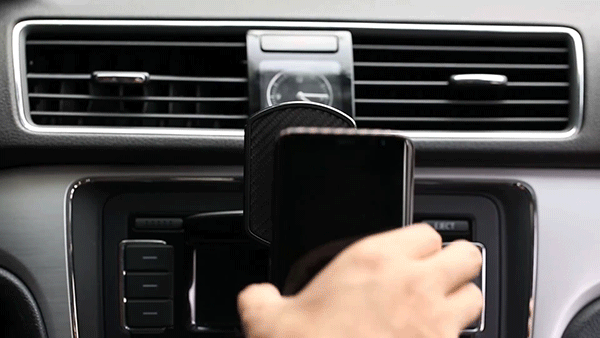
The Bottom Line
Magnets come in all shapes and sizes, different powers, strengths and they have so many uses.
We rely on magnets so much that some things would not work without them, and the magnetic smartphone car mount is one such device, simple yet reliant on magnets, but not all mounts are the same. Most magnetic phone mounts on the market use small magnets that won't really damage your phone's circuits or functionality.
However, some mounts are better engineered than others. The testing of the MagEZ Mount Qi proves that careful and clever engineering ensures that the phone is secure and that all functionality works as expected. Coupled with the PITAKA MagEZ Case and you have the perfect combination, the best-looking case and car mount, the strongest protection and secure connection between the smartphone and the mount, and no ugly stick on metal plates anywhere to be seen.
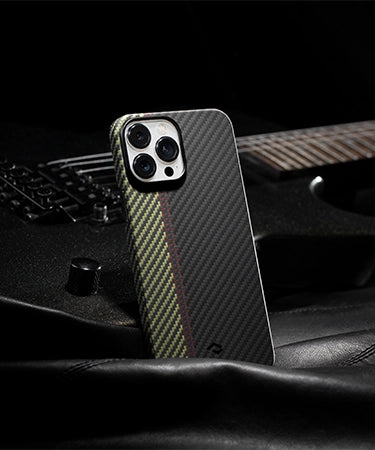
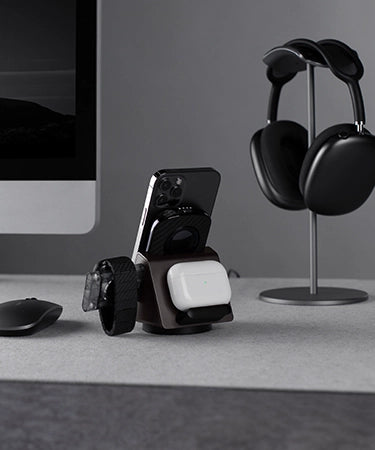
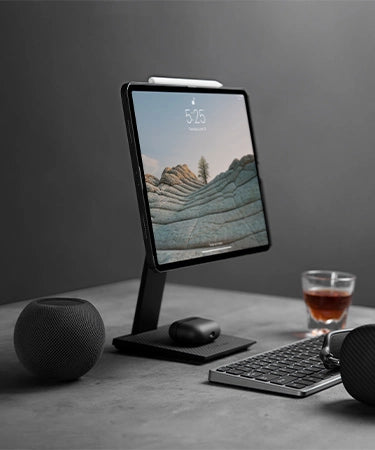

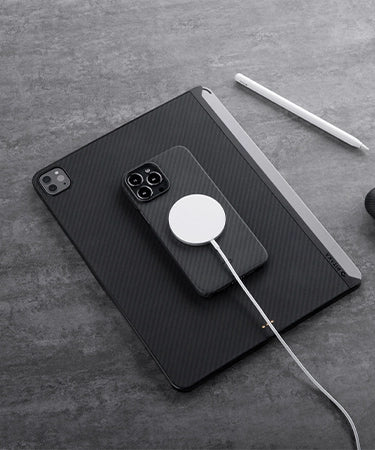

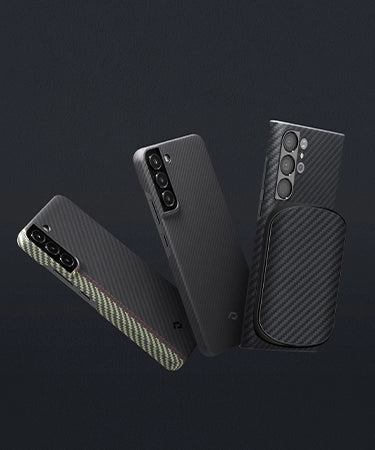
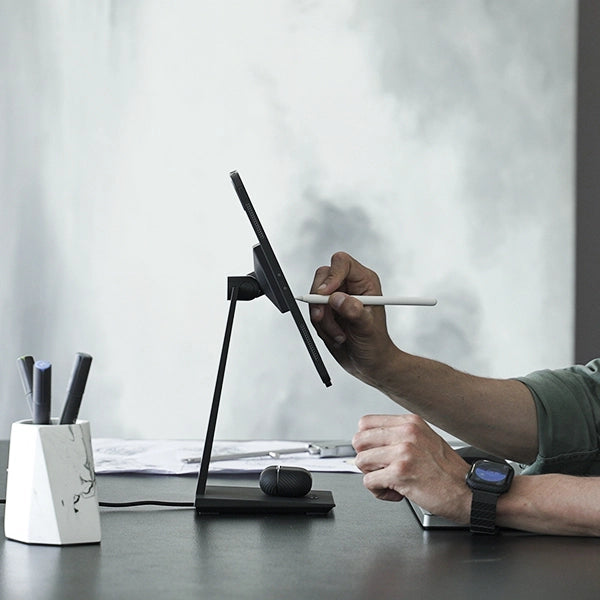
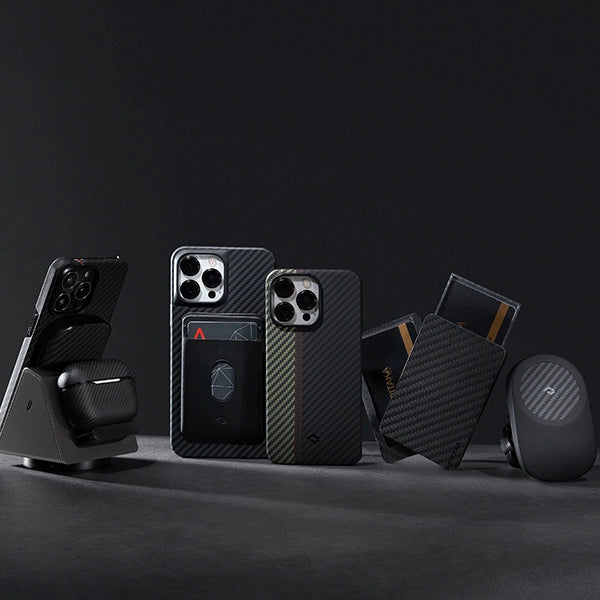
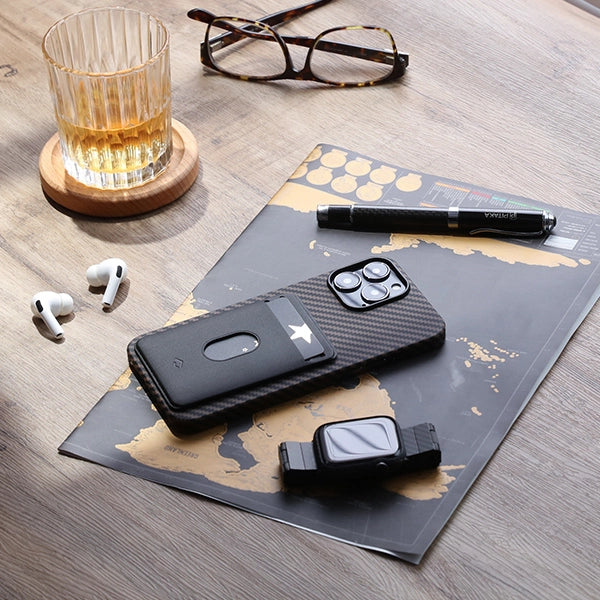


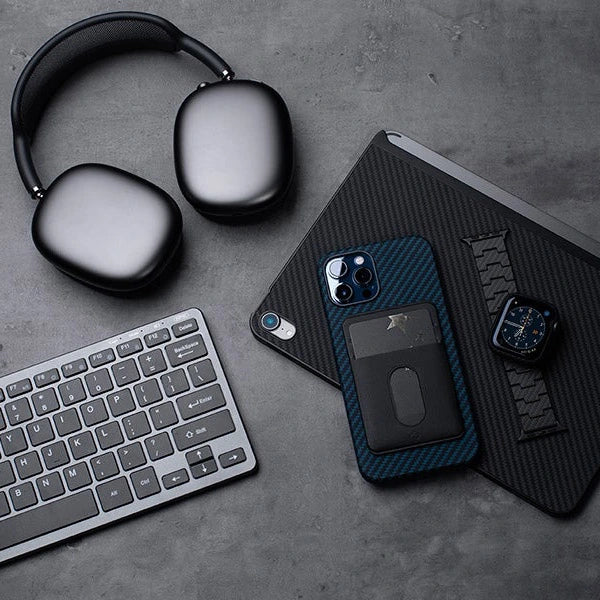
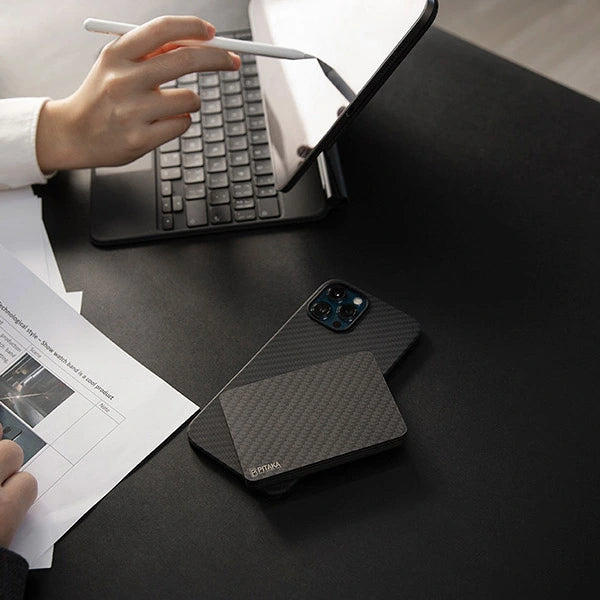
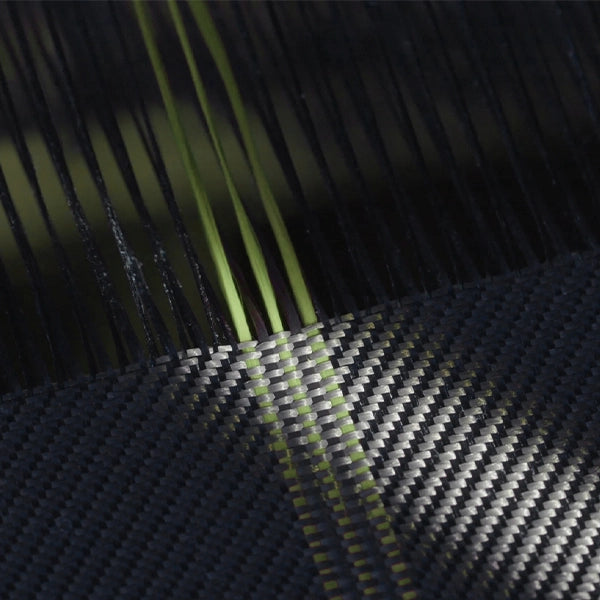

The question I had was concerning the affect the magnet might have on the battery life of the phone. I have a Samsung S7 and after putting a metal plate on the back of the phone case and using the charger in the car while driving, I noticed the battery life was shorter over time. The reason I questioned this was from a safety warning that came with a wireless charging device that stated if there was anything metallic attached to the back of the phone, such as a plate used for mounting to magnetic phone holders, it could cause the battery to over heat. Any thoughts on this? I loved the convenience of the magnetic holder, but am now worried about it affecting the phones battery. Any thoughts? Thank you.
Thanks for the extremely informative email on magnets and magnetic phone holders. Made a lot of sense.
I’ve been using my MagCase daily for over six months now, and I’m a hard, heavy user. I’ve literally worn out cases in less than that. However, amazingly, my MagCase looks exactly like the day I clicked it on my phone. I mean, it hasn’t even a scratch!
Brilliant.